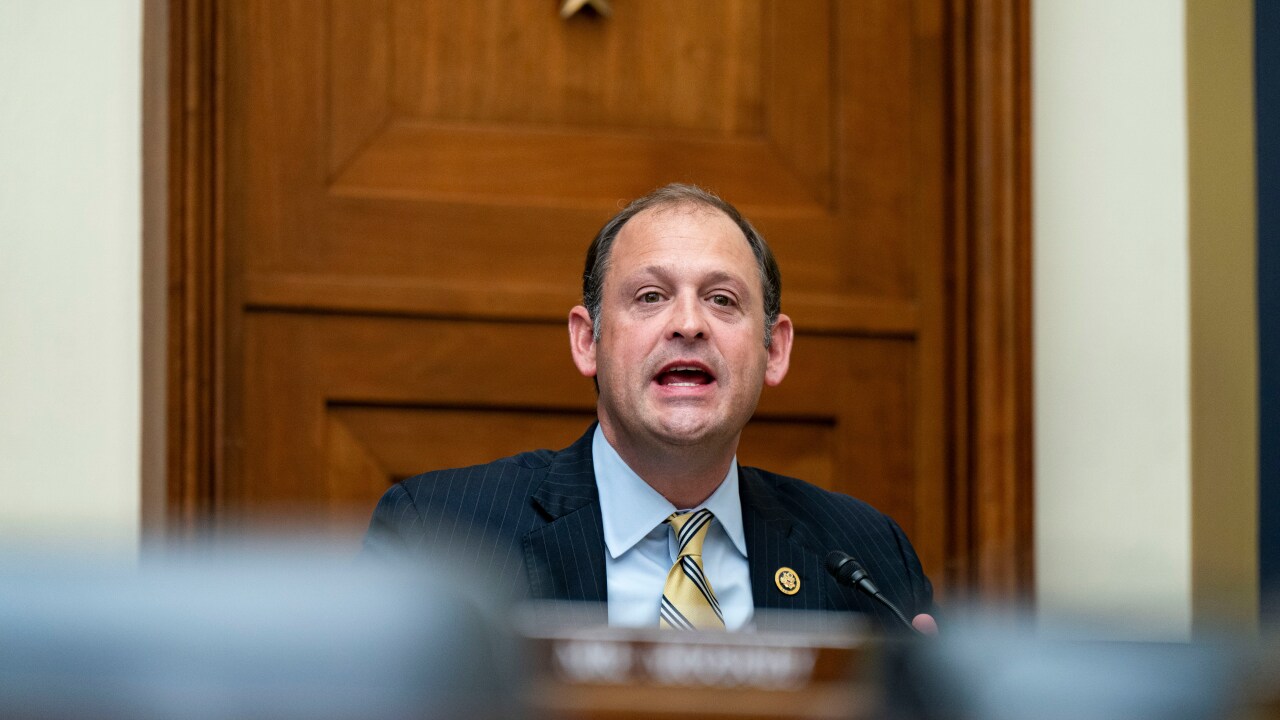
BRADENTON, Fla. — Assured Guaranty Ltd. said Tuesday that it will reconsider insuring the bonds of municipalities and states that don’t have a process to review and approve local bankruptcy petitions, citing Alabama as a primary example.
Local politics has impeded the implementation of “practical and fair solutions to difficult financial problems,” both in Alabama as well as Harrisburg, Pa., according to Dominic Frederico, president and chief executive of Assured.
“There are some disturbing trends in the market which may impact our future appetite for this business,” Frederico said, referring to insuring municipal bonds, during the firm’s third-quarter earnings call on Tuesday.
In Alabama, Jefferson County commissioners voted last week to file the largest municipal bankruptcy in the United States, placing a total of $4.2 billion of debt into Chapter 9, most of which is covered by various insurers, including Assured. The decision came after the county decided that it could not reach a restructuring agreement on $3.14 billion of troubled sewer warrants.
Alabama does not have a formal process in place to assist financially struggling local governments. In addition, counties have no home-rule powers, making them dependent on legislative authority for most funding needs.
Jefferson County failed to enlist the help of state lawmakers to resolve its financial crisis.
Frederico said Jefferson County’s bankruptcy was a disappointment because elements of a deal to restructure the sewer warrants had been negotiated, and included “significant concessions by the creditors.”
“Local governments must recognize their responsibilities to live up to the promises made by current and former duly elected officials,” he said. “We are concerned that the term 'bankruptcy’ gets thrown around a little bit too easily today.”
Assured will evaluate its policies with regard to the appropriate risk in each state, including whether states have procedures in place to deal with municipal bankruptcy petitions, Frederico said.
If there is no review process, Assured will “tell the bankers we aren’t interested in insuring in those states until such time as we see real change happening,” he said, adding, “Alabama is going to be a classic one.”
Underwriters and financial advisors in Alabama heard last Thursday, after Jefferson County filed its Chapter 9 petition, that no more municipal bonds would be covered by Assured, according to Michael Dunn, managing director at Montgomery, Ala.-based Merchant Capital LLC, a top underwriting firm in the state.
“It was our understanding that they made the decision not to write any new insurance as a result of Jefferson County filing for bankruptcy,” he said.
Assured has been active in Alabama, insuring $864.8 million of municipal bonds in 85 transactions so far this year, according to Thomson Reuters.
As the only viable bond insurer left, Dunn said Assured was “very good to work with” and charged fees he considered to be fair while creating value for issuers.
Without credit enhancement, many issuers — especially those with ratings below the double-A category — are likely to see borrowing costs go up, he said.
“Unfortunately, there are good credits around the state that will no longer have access to insurance, at least right now,” Dunn said, noting that underwriters in the state have not yet met to address the problem.
Meanwhile, Pennsylvania’s capital city was also a topic of discussion during Tuesday’s earnings call.
Harrisburg enrolled in a state intervention program but a majority of council members rejected a fiscal recovery plan over the city’s defaulted incinerator debt, despite a guarantee to pay it.
Insurance payments have covered some debt service payments owed by the city.
Harrisburg filed for Chapter 9 in October, and a federal judge could determine as early as next week if it qualifies for bankruptcy protection. A number of parties, including Assured and the state, have objected to the filing.
Harrisburg is seeking a $100 million haircut of its debt, which Assured has rejected. Meanwhile, the state is attempting to take over the city and place it into receivership.
“We’re not very happy with people that provide you terms like full faith and credit, then decide to challenge that wording in either a court of law or a court of public opinion as you see constantly in Harrisburg,” Frederico said. “We’re being asked to make concessions that make absolutely no sense when we have provided value to this municipality to help them achieve a debt financing at a cheaper cost.”
Mark Schwartz, Harrisburg’s bankruptcy attorney, pointed out that Assured and several others have filed litigation against Harrisburg which is designed to force the city to pay debt service to bondholders ahead of police and firemen.
Insurers have been “well paid to insure financings that they have reviewed, participated in, and voluntarily chosen to insure,” he said.
“Undoubtedly, there are some financings that should not have been done such as those in Harrisburg and Jefferson County,” Schwartz said.
Now Assured wants “to evade their obligations by litigation where they try to be paid ahead of police and firemen,” he added.
Schwartz said it is not local politics that impeded the implementation of practical and fair solutions in Harrisburg, but Assured’s refusal to recognize its liability “from the questionable financings” that it participated in.
“By stating that it won’t insure municipalities except in states which bar recourse to bankruptcy, Assured is acting in the best insurance company tradition, which is to be contemptuous of the public and policyholders,” he said.





